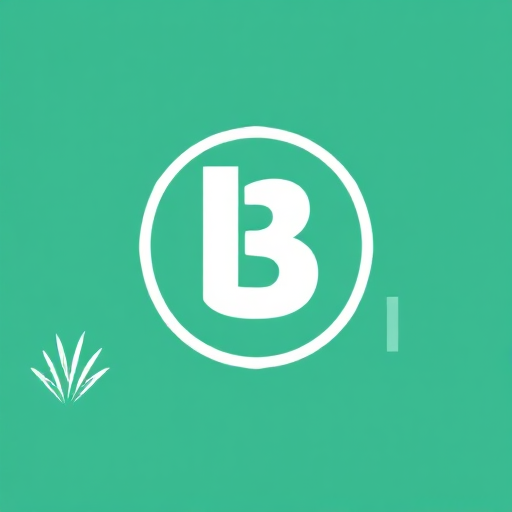Content Writing And Blogging Course
Content Writing and Blogging Course: A Path to Mastering Digital Content Creation
As digital marketing continues to grow, the demand for skilled content writers and bloggers has surged. Businesses, influencers, and individuals are leveraging online platforms to reach audiences, and this makes content writing and blogging two of the most sought-after skills in today’s market. A well-designed content writing and blogging course can help you master these skills, equipping you with the tools to produce engaging content, optimize it for search engines, and connect with your target audience.
This article will guide you through what a content writing and blogging course typically covers, the benefits of enrolling, and how it can help you succeed in the digital content space.
Find Out How To Make Money As A Full-Time Writer/Blogger Guide.
Why Take a Content Writing and Blogging Course?
- Professional Growth: Whether you’re an aspiring writer or looking to enhance your digital marketing skills, mastering content writing and blogging opens up numerous job opportunities in diverse industries, from media and publishing to eCommerce and marketing agencies.
- Increased Online Visibility: If you’re building your brand or promoting a business, writing compelling content helps you rank higher on search engines and engage your audience, leading to better reach and customer retention.
- Monetization Opportunities: Skilled content writers and bloggers can monetize their work through freelance writing, affiliate marketing, sponsored posts, or running successful blog sites.
Key Components of a Content Writing and Blogging Course
A comprehensive content writing and blogging course typically covers a range of topics that equip you with both writing skills and strategic know-how. Here’s what you can expect:
1. Fundamentals of Content Writing
- Writing for Different Platforms: Learn how to write for websites, social media, emails, newsletters, and more.
- Content Structure: Understand how to structure content for clarity, readability, and engagement, with a focus on headlines, introductions, body text, and calls to action.
- Grammar and Style: Develop strong grammar, punctuation, and tone-of-voice skills to enhance your writing’s professionalism.
2. Introduction to Blogging
- Choosing a Niche: Learn how to select the right blogging niche that aligns with your passions and has market potential.
- Blog Post Format: Understand how to write engaging blog posts, including crafting catchy headlines, writing compelling introductions, and including visual elements.
- Engaging Your Audience: Techniques for keeping your readers engaged, from storytelling and personal experiences to writing in a conversational tone.
3. SEO and Content Optimization
- Keyword Research: Learn how to find the right keywords that help your content rank higher on search engines like Google.
- On-Page SEO: Understand SEO best practices, including keyword placement, internal linking, meta descriptions, and alt tags for images.
- Content Optimization Tools: Learn how to use tools like Yoast SEO, SEMrush, or Ahrefs to optimize content performance.
4. Monetizing Blogs and Content
- Affiliate Marketing: How to incorporate affiliate links into your blogs and earn revenue through affiliate programs.
- Sponsored Posts and Ads: Learn how to collaborate with brands for sponsored content or integrate ads into your blog for passive income.
- Building a Subscriber List: Techniques for converting blog readers into email subscribers for future marketing efforts.
5. Content Strategy and Planning
- Content Calendars: Learn how to plan and organize content publishing using a calendar to ensure consistency.
- Audience Analysis: Understand how to analyze your target audience’s preferences and behaviors to tailor your content effectively.
- Analytics and Performance: Use tools like Google Analytics to track content performance and make data-driven improvements.
You Can Start A News Blog To Get Fast Grow
6. Editing and Proofreading
- Self-Editing Techniques: Learn how to edit and proofread your own work for clarity, grammar, and flow.
- Using Editing Tools: Get hands-on experience with editing tools like Grammarly, Hemingway, and ProWritingAid to polish your content.
7. Marketing Your Content
- Social Media Promotion: Learn how to effectively promote blog posts and written content across social media platforms like Facebook, Instagram, LinkedIn, and Twitter.
- Email Marketing: Discover strategies for using email marketing to drive traffic to your blog and convert leads.
- Collaborating with Influencers: Learn how to work with influencers and guest bloggers to expand your reach.
Benefits of Taking a Content Writing and Blogging Course
- Improved Writing Skills: A course helps refine your writing skills, teaching you how to write engaging, clear, and grammatically correct content for various audiences.
- SEO Knowledge: Learn critical SEO strategies that help your content rank on search engines, driving organic traffic and making your content discoverable.
- Hands-On Learning: Most courses offer practical assignments and real-world projects, allowing you to apply the concepts learned directly and build a portfolio.
- Access to Industry Tools: Gain experience using industry-standard tools such as WordPress for blogging, SEO software, content management systems (CMS), and editing tools.
- Certification: Many courses offer certifications that enhance your resume and increase your credibility with potential clients or employers.
- Monetization Opportunities: Learn how to create and monetize your own blog, start freelance writing, or contribute to content marketing campaigns for businesses.
Get 20 Blog Post For A Price Of Coffee: Content Is King
How to Choose the Right Content Writing and Blogging Course
- Course Content: Ensure the course covers a wide range of topics, from writing basics to advanced SEO, content marketing, and monetization strategies.
- Practical Application: Look for courses that offer hands-on projects, writing assignments, and real-world examples to help you build a portfolio.
- Instructor Expertise: Choose courses led by experienced writers, bloggers, or digital marketing professionals who have a successful track record in content creation.
- Certification: Check if the course offers certification upon completion, as this can boost your job prospects and credibility.
- Course Flexibility: If you’re working or have a busy schedule, consider opting for an online or self-paced course that allows you to learn at your convenience.
Popular Content Writing and Blogging Courses
- Udemy – Offers several comprehensive content writing and blogging courses, including beginner and advanced levels on topics like SEO, content strategy, and monetization.
- Coursera – Features professional courses by accredited universities, such as “The Strategy of Content Marketing” by the University of California, Davis.
- HubSpot Academy – Known for free, in-depth digital marketing courses, including those on content marketing and blogging.
- Skillshare – Provides creative content writing and blogging tutorials, focusing on both technical skills and creativity.
A content writing and blogging course equips you with the essential skills needed to thrive in the digital world. Whether you’re looking to enhance your writing abilities, optimize content for SEO, or start your own blog, the right course will provide you with the tools, strategies, and confidence to succeed. By learning from industry experts and applying the skills you gain, you can turn your passion for writing into a rewarding career or successful online business.







